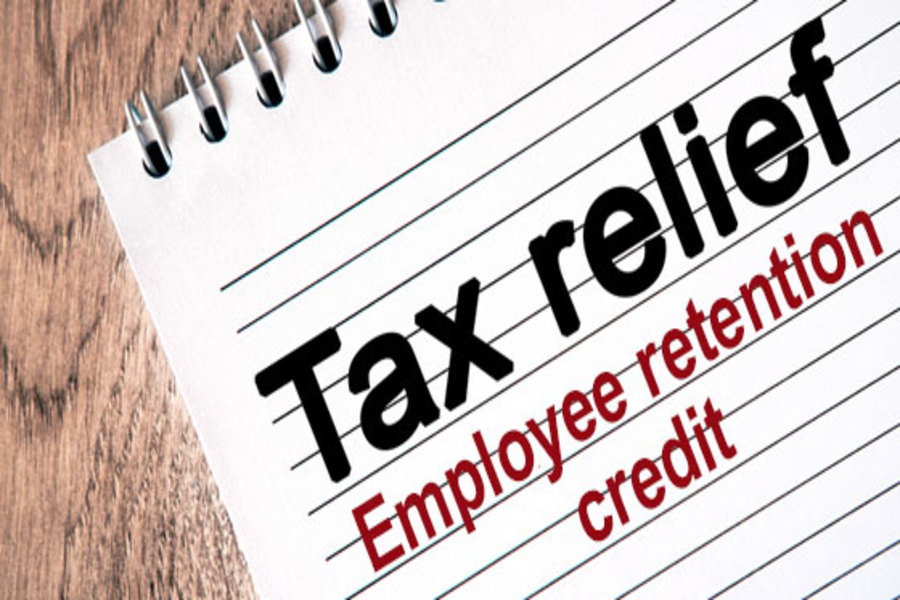On 2/3/2023, the IRS issued Notice 2023-16 guidance that modifies the definitions of certain vehicle classifications for the new, previously owned and qualified commercial clean vehicle tax credits. As a result of this notice, the IRS updated the related frequently asked questions for these credits which can be found on IRS Fact Sheet 2023-4 here: IRS Fact Sheet 2023-04 (This is Blog Post #1340)...

The recently enacted Coronavirus Aid, Relief, and Economic Security (CARES) Act provides a refundable employee retention tax credit for 50% of wages paid by eligible employers to certain employees during the COVID-19 pandemic. The employee retention credit is available to employers, including nonprofit organizations, with operations that have been fully or partially suspended as a result of a government order limiting commerce, travel or group meetings. The credit is also provided to employers who have experienced a greater than 50% reduction in quarterly receipts, measured on a year-over-year basis. IRS ISSUES FAQs The IRS has now released FAQs about the credit. Here are some highlights. How is the credit calculated? The credit is 50% of qualifying wages paid up to $10,000 in total. So the maximum credit for an...
On 3/27/20, President Trump signed into law another coronavirus (COVID-19) law. The CARES Act provides more tax relief for businesses employers. Here are some of the tax-related provisions in the Coronavirus Aid, Relief, and Economic Security Act. Employee retention credit The new law provides a refundable payroll tax credit for 50% of wages paid by eligible employers to certain employees during the COVID-19 crisis. Employer eligibility. The credit is available to employers with operations that have been fully or partially suspended as a result of a government order limiting commerce, travel or group meetings. The credit is also provided to employers that have experienced a greater than 50% reduction in quarterly receipts, measured on a year-over-year basis. The credit isn’t available to employers receiving Small Business Interruption Loans under...
(This is Blog Post #774)...
The IRS and Congress have responded with some Coronavirus tax relief for individuals. Taxpayers now have more time to file their tax returns and pay any tax owed because of the coronavirus (COVID-19) pandemic. The Treasury Department and IRS announced that the federal income tax filing due date is automatically extended from April 15, 2020, to July 15, 2020. Taxpayers can also defer making federal income tax payments, which are due on April 15, 2020, until July 15, 2020, without penalties and interest, regardless of the amount they owe. This deferment applies to all taxpayers, including individuals, trusts and estates, corporations and other non-corporate tax filers as well as those who pay self-employment tax. They can also defer their initial quarterly estimated federal income tax payments...
These days, most businesses need a website to remain competitive. It’s an easy decision to set one up and maintain it. But determining the proper tax treatment for the costs involved in developing a website isn’t so easy. That's because the IRS hasn’t yet released guidance on business website cost tax treatment. Consequently, you must apply existing guidance on other costs to the issue of website development costs. Hardware and software First, let’s look at the hardware you may need to operate a website. The costs involved fall under the standard rules for depreciable equipment. Specifically, once these assets are up and running, you can deduct 100% of the cost in the first year they’re placed in service (before 2023). This favorable treatment is allowed under the...
Do you want to withdraw cash from your closely held corporation at a low tax cost? The easiest way is to distribute cash as a dividend. However, a dividend distribution isn’t tax-efficient, since it’s taxable to you to the extent of your corporation’s “earnings and profits.” But it’s not deductible by the corporation. Fortunately, there are several alternative methods that may allow you to withdraw cash from a corporation while avoiding dividend treatment. Here are five ideas: (1) Capital repayments To the extent that you’ve capitalized the corporation with debt, including amounts that you’ve advanced to the business, the corporation can repay the debt without the repayment being treated as a dividend. Additionally, interest paid on the debt can be deducted by the corporation. This assumes that the...
Money laundering is the process by which criminals transform their ill-gotten gains into legitimate-looking funds. It’s widespread and wide-reaching, making it a significant corrupting influence on financial systems, governments and certain professionals. Criminals use many different types of businesses to “wash” their dirty money, but some are more useful than others. Real estate money laundering is a favorite industry, given its high dollar value and availability of inventory. Money Laundering: 3 steps The typical money laundering scheme involves three phases: Placement: Here the proceeds of criminal activity enter the financial system. Layering: This is where the money launderer conducts a series of transactions to distance the money from its criminal source. Integration: Finally, the criminal uses the money, which now appears legitimate and divorced of any crime. Executing money laundering operations effectively is critical if...
(This is Blog Post #639)...










